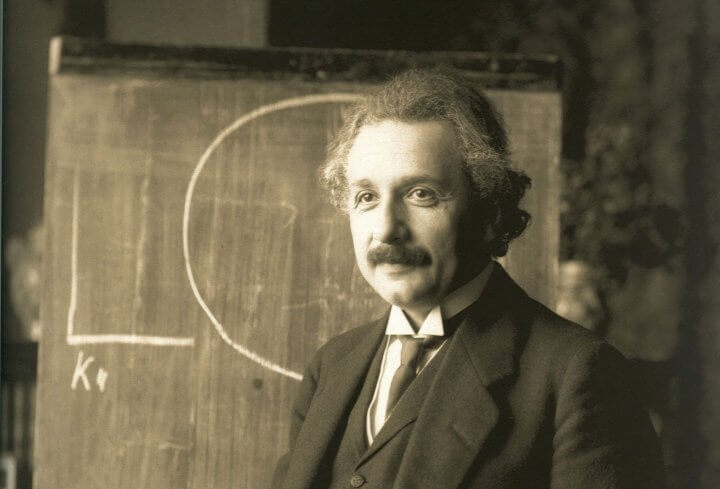Albert Einstein was born on March 14, 1879 in Ulm, Germany.
When he was just an infant and barely six weeks old his family moved to Munich. The Einstein’s were a family that highly prized education so when he was old enough Albert began his education at the Luitpold Gymnasium in Munich. Later, the family moved to Italy and Albert then continued his education at Aarau, Switzerland. In 1896 he entered the Swiss Federal Polytechnic School in Zurich where he was to be trained as a teacher in physics and mathematics. In 1901, when he gained his diploma, he also acquired Swiss citizenship. Yet he was unable to find a teaching post so he accepted a position as technical assistant in the Swiss Patent Office. He continued on with his schooling and, in 1905, he obtained his doctor’s degree at the young age of 26.
It was during his stay at the Swiss Patent Office, and in his spare time, that he produced much of his remarkable work. He gained remarkable academic recognition for such a young person and in 1909 he became Professor Extraordinary at Zurich, in 1911 Professor of Theoretical Physics at Prague, and then returned to Zurich in the following year to fill a similar post. In 1914 he was appointed the Director of the Kaiser Wilhelm Physical Institute and Professor in the University of Berlin. It was then that he became a German citizen in 1914 and remained in Berlin until 1933. At the height of the political upheaval he renounced his citizenship for political reasons and immigrated to America to take the position of Professor of Theoretical Physics at Princeton. He became a United States citizen in 1940 and retired from his last post in 1945.
After World War II, Einstein had become a leading figure in the World Government Movement and he was offered the Presidency of the State of Israel. He declined the position but went on to collaborate with Dr. Chaim Weizmann in establishing the Hebrew University of Jerusalem.
While Einstein may be best known for his physics work on the theory of relativity his work was extensive. He was both a prolific researcher and writer. While his works are well chronicled his more important works include:
• Special Theory of Relativity (1905)
• Relativity (English translations, 1920 and 1950)
• General Theory of Relativity (1916)
• Investigations on Theory of Brownian Movement (1926)
• The Evolution of Physics (1938)
Not all of his works were scientifically based. Some of his most important works included his political ideology and are a reflection of his life. These include:
• About Zionism (1930)
• Why War? (1933)
• My Philosophy (1934)
• Out of My Later Years (1950)
Albert Einstein received numerous honorary doctorate degrees in science, medicine and philosophy from many European and American universities. During the 1920’s he also lectured in Europe, America and the Far East and he was awarded fellowships or memberships in all the leading scientific academies throughout the world. He was recognized with numerous awards for his work which included the Copley Medal of the Royal Society of London in 1925 and the Franklin Medal of the Franklin Institute in 1935.
Because of his genius and his gifts his personal life inevitably resulted in his dwelling much in intellectual solitude. Personal relationships were often difficult for him and for relaxation; music played an important part in his life. Albert married Mileva Maric in 1903 and they had a daughter and two sons; yet sadly their marriage was dissolved in 1919 and in the same year he married his cousin, Elsa Lowenthal, who died in 1936. Albert Einstein died on April 18, 1955 at Princeton, New Jersey.


Leave a Reply